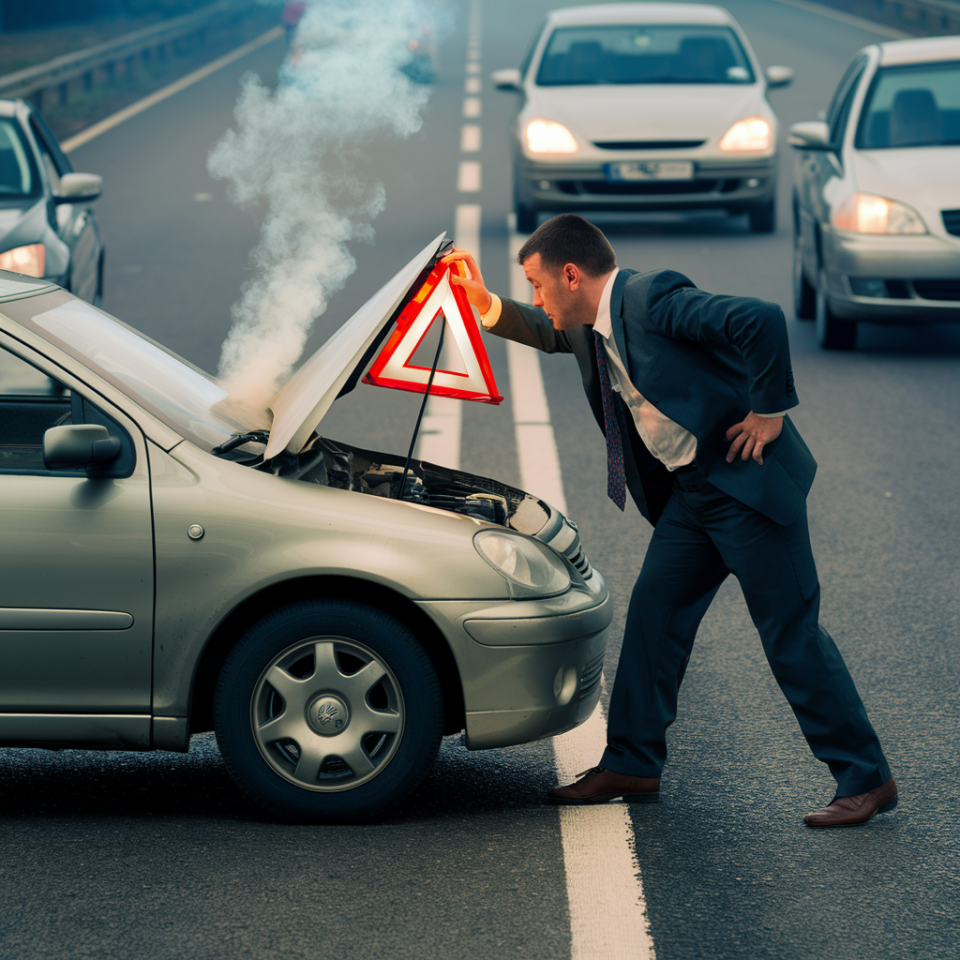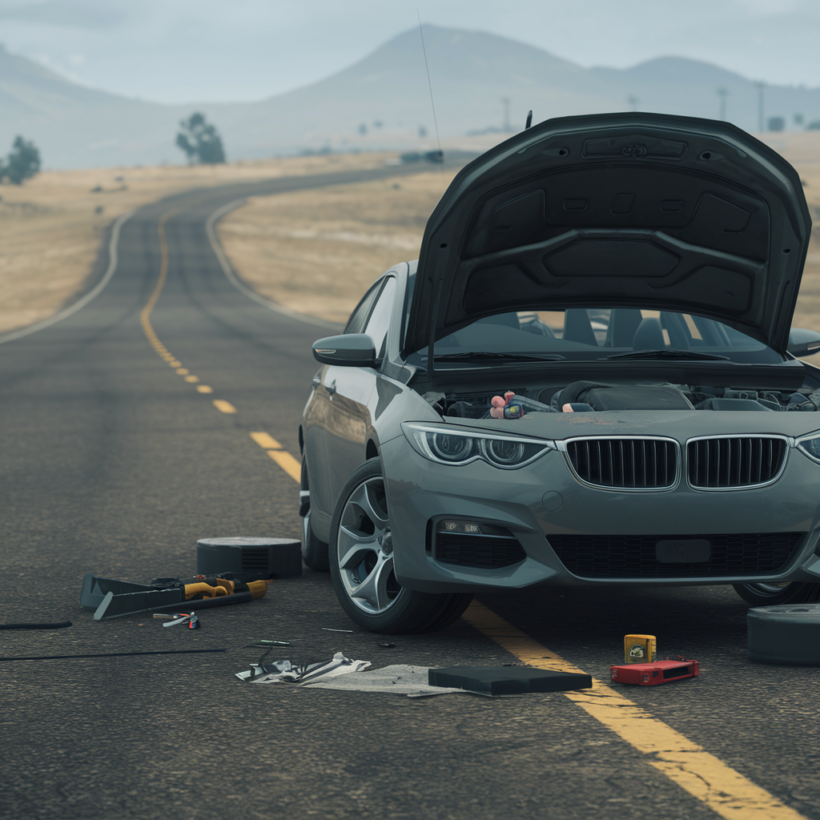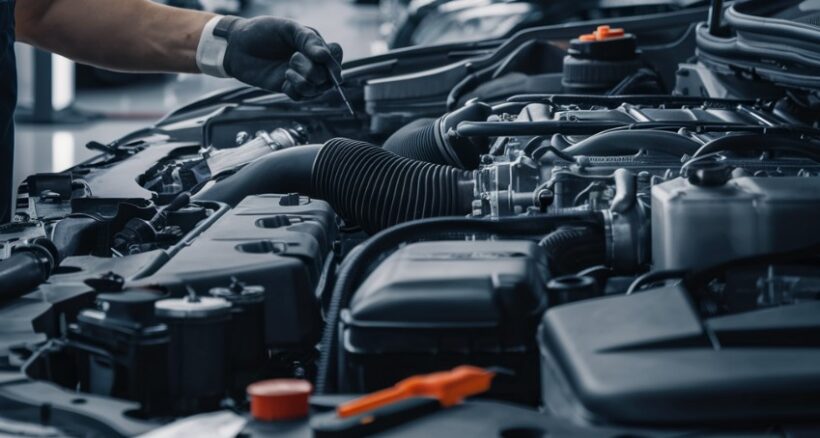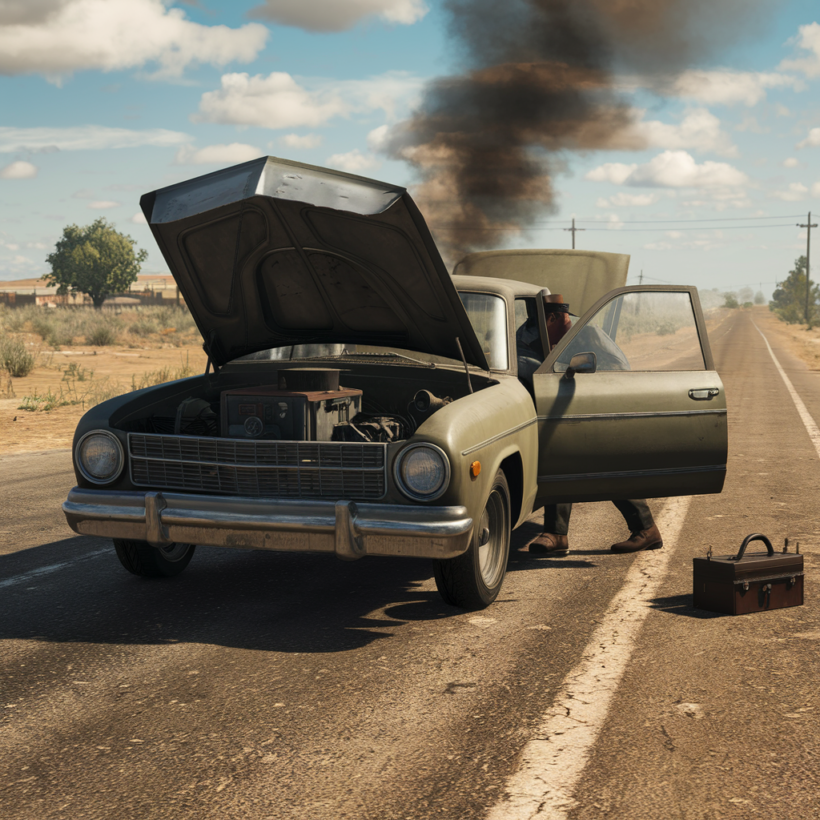So, you’re driving down the road, maybe jamming to your favorite tunes or daydreaming about your next vacation, when suddenly, your car gives out.
It’s a frustrating and nerve-wracking experience, but don’t worry – we’ve all been there. Let’s talk through what you should do step-by-step to stay safe and get back on the road as quickly as possible.
Pull Over Safely
First things first, if your car starts acting up, try to stay calm. Turn on your hazard lights immediately to signal to other drivers that something is wrong. If you can, steer your car to the right shoulder of the road.
Ideally, find a flat, straight section where you and your car are visible to oncoming traffic. If you’re in San Diego and need assistance, consider calling Expedite Towing for fast and reliable roadside service.
Tips for Pulling Over
- Stay calm: Panicking won’t help, so take a deep breath and focus.
- Signal early: Turn on hazard lights as soon as you sense trouble.
- Choose a safe spot: Aim for a straight stretch of road, away from curves or hills.
Stay Inside the Car
So you’ve pulled over to the side – good call there. Now, I’d usually recommend just hanging tight in your car. It’s a lot safer than standing out in the open, especially if you’re on a busy road or the visibility ain’t great.
That said, if you really don’t feel good about staying put – like maybe there’s a risk of a fire or something – then yeah, better to get out and put some distance between you and the car. Safety first.
What to Do Inside the Car
- Keep your seatbelt on: You’re still at risk of being hit.
- Call for help: Use your phone to call a roadside assistance service or a friend who can help.
- Stay visible: Keep your hazard lights on and, if you have them, use road flares or safety triangles to warn other drivers.
Assess the Situation
If you’re in a safe place and feel comfortable doing so, try to figure out what’s wrong with your car. This might help you decide whether you need professional help or if it’s something you can fix yourself. However, never put yourself at risk to diagnose the problem.
Common Issues You Can Check
- Flat tire: If you hear a thumping noise or your car is pulling to one side, you might have a flat.
- Overheating: Steam or an unusual smell coming from the engine could indicate overheating.
- Dead battery: If your car won’t start and you hear clicking, it could be a dead battery.
Call for Help
If you can’t fix the problem on your own, it’s time to call for help. Most insurance policies include roadside assistance, and there are plenty of services like AAA that can come to your rescue. Be sure to provide them with your exact location, a description of your car, and the nature of the problem.
Information to Provide
- Your location: Use GPS on your phone to pinpoint your exact location.
- Car details: Make, model, and color of your car.
- Problem description: Describe what happened as best as you can.
Use Emergency Supplies
While waiting for help, you might need to use some emergency supplies. Keeping a well-stocked emergency kit in your car can make a big difference.
Items for Your Emergency Kit
- Water and snacks: For staying hydrated and keeping your energy up.
- Blanket or warm clothes: In case it’s cold.
- First-aid kit: For any minor injuries.
- Flashlight: To see and signal for help in the dark.
- Basic tools: A screwdriver, wrench, and pliers for minor fixes.
Dealing with Towing
Sometimes, your car will need to be towed. When the tow truck arrives, make sure you understand where they’re taking your car. You’ll want it towed to a reputable mechanic or a place where you feel confident it will be repaired correctly.
Questions to Ask the Tow Truck Driver
- Where is my car going?
- How much will it cost?
- Can I ride with you to the location?
Preventing Future Breakdowns
After you’ve dealt with the immediate situation, it’s worth thinking about how to prevent future breakdowns. Regular maintenance can go a long way in keeping your car running smoothly.
Maintenance Tips
- Regular oil changes: Follow your car’s maintenance schedule for oil changes.
- Check tire pressure: Make sure your tires are inflated to the correct pressure.
- Battery check: Have your battery tested regularly to ensure it’s in good condition.
- Fluid levels: Regularly check and top off all your car’s fluids, including coolant, brake fluid, and windshield washer fluid.
Know Your Resources
Familiarize yourself with the resources available to you before you even start driving. Whether it’s knowing the number of your roadside assistance service or having a trusted mechanic, being prepared can save you a lot of hassle.
Useful Resources
- Roadside assistance number: Keep it saved in your phone.
- Mechanic’s contact: Have a trusted mechanic’s number handy.
- Emergency contacts: Make sure friends or family know your typical routes in case they need to find you.
Stay Positive
It’s easy to feel frustrated or scared when your car breaks down, but try to stay positive. Remind yourself that help is on the way, and this is just a temporary setback. Use the time to catch up on your favorite podcast, read a book you’ve been meaning to start, or simply relax.
Ways to Stay Positive
- Entertainment: Keep a book or download some podcasts to pass the time.
- Mindfulness: Practice deep breathing or meditation to stay calm.
- Gratitude: Focus on things you’re grateful for to keep a positive mindset.
Final Thoughts
Breaking down in the middle of the road is never fun, but knowing what to do can make the experience much less stressful. Remember to pull over safely, stay inside your car if it’s safe, call for help, and use your emergency supplies while you wait. Regular maintenance can help prevent future breakdowns, and knowing your resources ahead of time can make a big difference. Stay calm, stay safe, and you’ll be back on the road in no time.




